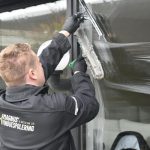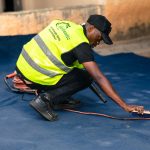Self-sponsorship offers overseas entrepreneurs the unique opportunity to establish their UK presence while securing immigration status through their own business. According to recent Home Office data, entrepreneur visa applications increased by 23% in 2025, reflecting growing interest in UK market opportunities.
This innovative approach allows business owners to obtain a sponsor licence for their UK company, then sponsor themselves for a Skilled Worker visa. The process combines business formation with immigration strategy, creating a dual pathway to both commercial success and legal residence. Could your entrepreneurial vision become the foundation for your UK future? The Self-sponsorhship Visa route makes this possible.
Also to read : How Will Recent Market Trends Affect UK Businesses?
What Makes Self-Sponsorship an Attractive Option for Entrepreneurs
Self-sponsorship stands out as a game-changing pathway for ambitious entrepreneurs seeking UK market entry. Unlike traditional visa routes that depend on external employers or investors, this approach puts you firmly in the driver’s seat of your immigration journey.
The appeal lies in the complete autonomy it offers. You design your business model, set your timeline, and maintain full ownership of your venture. There’s no need to convince third-party sponsors or surrender equity to external investors who might not share your vision.
This might interest you : What Are the Latest Trends in UK Business That Could Impact Future Success?
This route also provides remarkable scalability opportunities. Once your sponsor licence is approved, you can expand your team by sponsoring skilled workers from overseas, creating a direct pipeline for international talent. Your business becomes both the foundation for your UK residency and a vehicle for growth.
For entrepreneurs with corporate immigration expertise, the self-sponsorship model offers strategic advantages that traditional employment-based visas simply cannot match. You control every aspect of the process while building a business that serves your long-term objectives in the UK market.
Essential Requirements for Your Visa Application
Successfully securing a self-sponsorship visa requires meeting specific criteria that demonstrate your business viability and commitment to the UK market. Understanding these requirements upfront helps streamline your application process and avoid costly delays.
Your journey begins with establishing the right foundation. Each requirement serves a purpose in proving your genuine intention to contribute to the UK economy through sustainable business operations.
- Sponsorship licence – Your UK company must obtain a valid sponsor licence from the Home Office, demonstrating compliance with immigration regulations and operational legitimacy
- Financial requirements – Maintain adequate funds to support yourself and any dependents, typically requiring £1,270 per month for 90 days prior to application
- Professional qualifications – Hold relevant degree-level qualifications or equivalent professional experience that supports your business venture and visa category
- Comprehensive business plan – Present a detailed strategy outlining your business model, market analysis, financial projections, and job creation potential for UK residents
- Investment capital – Demonstrate access to sufficient funds for business establishment and initial operations, varying by business type and scale
Our experienced team provides complete guidance through each requirement, ensuring your application meets Home Office standards while positioning your business for long-term success in the UK market.
Financial Thresholds and Investment Criteria
The financial requirements for UK self-sponsorship represent one of the most critical aspects of your application. The Home Office sets specific monetary thresholds that your business must meet, and these figures vary depending on your chosen visa route and business structure.
For most entrepreneur visa categories, you’ll need to demonstrate access to substantial funds. The typical investment threshold ranges from £50,000 to £200,000, though exceptional circumstances may allow for lower amounts with compelling business justification. These funds must be genuinely available and held in regulated financial institutions for a specified period before application.
Proving your financial capacity requires comprehensive documentation. Bank statements spanning six months, audited financial records, and third-party verification letters form the foundation of your evidence package. The Home Office scrutinizes source of funds particularly closely, requiring clear documentation of how you acquired your investment capital through legitimate business activities, property sales, or inheritance.
Beyond initial investment, you must also demonstrate ongoing financial sustainability. This includes projected cash flow statements, detailed business plans showing revenue forecasts, and evidence of sufficient personal maintenance funds to support yourself and any dependents throughout your visa period without recourse to public funds.
Navigating the Application Timeline and Process
The self-sponsorship visa journey typically unfolds over 6-12 months, requiring careful orchestration of business formation and immigration requirements. Your timeline begins with establishing a genuine UK business that meets Home Office standards for sponsorship eligibility.
The initial phase involves incorporating your company and building operational foundations. You’ll need to demonstrate real business activity, secure premises, and establish financial systems before applying for your sponsor licence. This groundwork phase usually takes 2-4 months, depending on your business complexity and sector requirements.
Once your business is operational, the sponsor licence application follows. The Home Office typically processes these applications within 8 weeks, though complex cases may extend longer. During this period, compliance officers may conduct site visits to verify your business authenticity and management systems.
Professional guidance proves invaluable throughout this intricate process. Experienced consultants can streamline your timeline by ensuring applications meet strict Home Office criteria from the outset, preventing costly delays and rejections that could set your plans back months.
Common Pitfalls and How to Avoid Them
Many overseas entrepreneurs stumble on seemingly minor details that can derail their entire UK visa application. The most frequent mistake involves incomplete documentation, where applicants assume certain requirements are optional rather than mandatory. Immigration officers scrutinize every detail, and missing even one supporting document can trigger delays or outright refusal.
Timing represents another critical vulnerability. Entrepreneurs often underestimate the preparation timeline, rushing their application without proper groundwork. A successful self-sponsorship visa requires months of careful planning—establishing your UK company, demonstrating genuine business activity, and building a compelling case for your investment credentials.
Financial planning mistakes prove equally costly. Many applicants focus solely on the visa fees while overlooking ongoing compliance costs, professional services, and the substantial investment capital required to maintain their sponsored status. Understanding the total financial commitment upfront prevents unpleasant surprises later in the process.
Working with experienced immigration consultants helps navigate these complexities effectively. Their expertise transforms potential pitfalls into manageable steps, ensuring your application meets every requirement from the outset.
Post-Approval: Setting Up Your UK Business Successfully
Congratulations on securing your visa approval! Now begins the exciting phase of establishing your UK business and ensuring full compliance with British regulations. The transition from visa holder to operational business owner requires careful attention to administrative requirements and legal obligations.
Your first priority involves registering your company with Companies House, opening a business bank account, and implementing proper accounting systems. These foundational steps must align with the business plan you submitted during your visa application. Any significant deviations could impact future visa renewals or extensions.
Tax compliance becomes crucial from day one of operations. You’ll need to register for Corporation Tax, potentially VAT, and ensure your payroll systems meet HMRC requirements. Our end-to-end support continues beyond visa approval, guiding you through each compliance milestone while your business establishes its market presence in the UK.
Your Questions About Self-Sponsorship Answered
Self-sponsorship queries flood UK immigration consultancies daily, reflecting the growing interest in this pathway for overseas entrepreneurs. Here are the most frequently asked questions about establishing your business and securing your UK visa through self-sponsorship.
How can I sponsor myself for a UK visa through my own business?
You must establish a UK company, obtain a sponsor licence, and apply for a Skilled Worker visa. Your business becomes your sponsor, enabling legal employment in the UK.
What are the requirements for a self-sponsorship visa in the UK?
Key requirements include a legitimate UK business, sponsor licence, job role meeting skill level requirements, English proficiency, and sufficient financial maintenance funds for yourself and dependants.
Can I apply for a UK visa by starting my own company?
Yes, forming a UK company is the foundation of self-sponsorship. The company must be actively trading and demonstrate genuine business activities to support your visa application.
How much does it cost to get a self-sponsorship visa for the UK?
Total costs typically range £5,000-£8,000 including company formation, sponsor licence fees, visa application fees, healthcare surcharge, and professional consultancy services for complete guidance.
What documents do I need for a self-sponsorship visa application?
Essential documents include passport, English language certificates, financial evidence, company registration papers, sponsor licence, Certificate of Sponsorship, and business bank statements proving active operations.
How can immigration consultants help with my self-sponsorship journey?
Professional consultants handle complex paperwork, ensure compliance, guide business formation, manage sponsor licence applications, and provide ongoing support throughout your visa process for successful outcomes.











